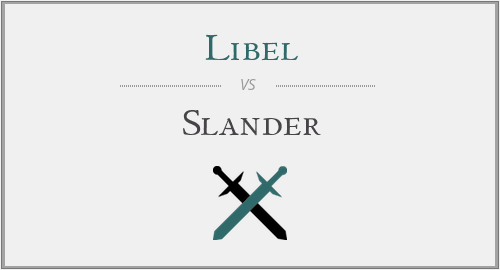Libel vs. Slander: Navigating Differences in Defamation
Understanding the differences between "libel" and "slander" involves recognizing distinctions in forms of defamation. This article aims to clarify the meanings, applications, and legal implications of "libel" and "slander" in various communication contexts.
Correct Usage:
Libel:
"Libel" refers to a form of defamation that involves making false statements about a person, business, or entity in written or published form. This can include content in newspapers, magazines, online articles, or other written materials.
Slander:
"Slander" refers to a form of defamation that involves making false spoken statements about a person, business, or entity. Slanderous statements are typically made verbally and not in written or published form.
Meanings and Applications:
Libel:
Use "libel" when describing false and damaging statements that are made in written or published form. Libel can include statements made through various media channels, including print and online publications.
Slander:
Use "slander" when describing false and damaging statements that are made verbally, typically in spoken conversations or presentations. Slander does not involve written or published content but instead focuses on spoken communication.

Examples:
Correct: The newspaper article contained libelous statements about the company's financial practices.
Correct: The celebrity filed a lawsuit, claiming that the radio host spread slander about their personal life.
Legal Implications:
Both libel and slander are forms of defamation, which can have legal consequences. Laws regarding defamation vary, but in general, individuals or entities making false statements that harm someone's reputation may be subject to legal action.
Conclusion:
Navigating the distinctions between "libel" and "slander" is crucial for understanding the different forms of defamation. Whether discussing written or spoken false statements, recognizing the specific meanings of these terms enhances clarity and awareness of potential legal implications.




Have a discussion about this article with the community:
Report Comment
We're doing our best to make sure our content is useful, accurate and safe.
If by any chance you spot an inappropriate comment while navigating through our website please use this form to let us know, and we'll take care of it shortly.
Attachment
You need to be logged in to favorite.
Log In